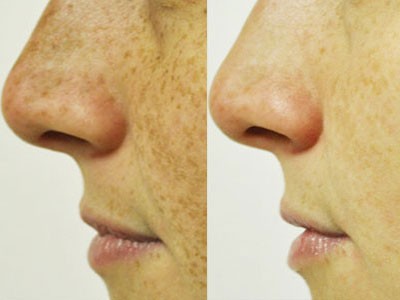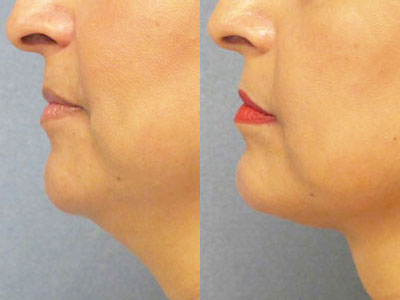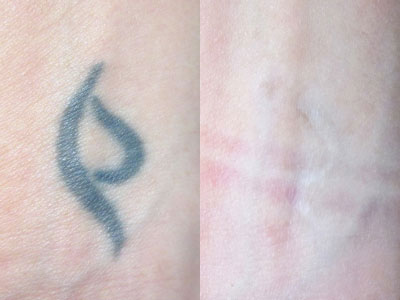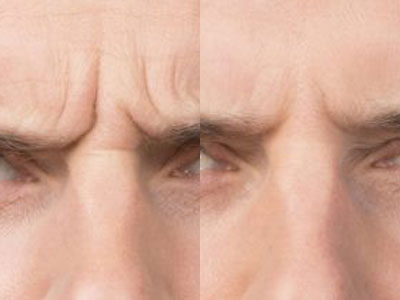You’re a detail-oriented person.
You’re the kind of person who reads ALL the Amazon reviews before making a purchase.
When you go out to eat, you bet you’ve already checked out the menu online beforehand.
You’re especially thorough when it comes to choices regarding your self-care. With wrinkles becoming more apparent on your forehead, you’re becoming more intrigued by Botox.
But the researcher inside you can’t help but wonder:
- What are the side effects of Botox?
- Are there any long term effects of Botox?
- Are there any health benefits to getting Botox over the long run?
- Is Botox safe?
This guide will help you navigate the long-term effects of Botox treatment.
Go ahead and grab yourself a coffee. It’s time to get your research on.
Botox: A Brief Overview – What is it?
Botox, or Botulinum toxin type A, is an injectable treatment that temporarily improves the appearance of dynamic wrinkles and expression lines.
Botox – and several other neuromodulators – have been FDA approved for over 20 years.
Botox can be used for both cosmetic or therapeutic purposes, like:
- Lessening the appearance of wrinkles
- Blocking excessive sweating
- Treating migraines
- Contouring muscles
- And more
Botox is a relatively quick procedure, lasting around 15 minutes per session.
That’s all you needed to know, right?
Just kidding. We know you have more questions…
What are the Effects of Botox?
Botox affects the treated areas in a number of ways. Let’s review three of the most common effects of Botox.
Inhibited Nerves
Botox is classified as a neuromodulator, which means it inhibits nerve transmission. When injected, it binds to your muscles at the injection site.
Over one to three days, it will begin to block the release of acetylcholine, causing muscle weakness.
Temporary Muscle Weakening
How did those wrinkles get there anyway?
Dynamic wrinkles occur because of overuse of the muscle. Most commonly, dynamic wrinkles can be found on the forehead, crow’s feet, or around the mouth.
To stop overuse of the muscle, Botox works beneath your skin’s surface, temporarily weakening your muscle’s ability to contract. As a result, the skin over the muscle smooths, giving you that flawless, wrinkle-free look.
Smooth Skin
Ah, smooth skin. The effect we’re all after.
With Botox, you’ll experience smoother skin at the injection site for three to six months. Some younger patients may be able to go even less often.
Botox Effects After Long-term Use
Since Botox has been around for so long now, researchers are beginning to study long-term effects the drug may have.
Given its muscle-weakening properties, researchers are interested in what effect this could have on your body long term.
For example, what would happen if you didn’t use your arm for 20 years?
Your arm muscle would weaken.
Similarly, injecting Botox in your forehead over the long term can weaken the muscles there.
As a result, your forehead muscles won’t contract as much, which means they won’t develop wrinkles as much. While weakened muscles may not be your end-goal, a wrinkle-free forehead sure is.
What happens if you get Botox for years, and then one day, decide you want to stop?
Even if you stopped getting Botox regularly after ten years, you would look younger than if you never did it at all.
To bring this to light, scientists studied the effects of Botox on identical twins. In this study, one twin received Botox in her forehead and glabellar lines (between eyebrows) routinely for 13 years. The other twin received it only twice during those ten years.
Scientists then compared the faces of the identical twins, seven months after halting treatment. For the twin who DID receive Botox regularly but stopped:
- Forehead lines weren’t apparent
- Glabellar lines weren’t apparent
- Crow’s feet were less apparent
The confirmed truth:
Botox will still make you look younger, even if you stop it after years of use.
Is Botox Bad for You?
You wouldn’t be the first person to question whether Botox is safe. After all, all prescription drugs have side effects.
However, when used for cosmetic purposes, Botox is given in very small quantities. This study found that serious adverse effects are more common after using Botox therapeutically (in larger doses) than for cosmetic purposes.
Interestingly, there’s even some research to support the use of Botox to treat anxiety and depression.
Because emotions like fear, anxiety, and depression tend to run through our forehead muscles, when we relax those muscles, we also inhibit their ability to transmit those emotions.
Possible Botox Side Effects: Short-term
Like all drugs, Botox has its risks.
While uncommon, patients receiving Botox may experience:
- Muscle weakness
- Difficulty breathing
- Difficulting speaking
- Hives
- Chest pain
- Loss of bladder control
- Bleeding and redness at the injection site
Possible Botox Side Effects: Long-term
So what are the long-term side effects of Botox injections?
- Muscle weakness at the injection site while Botox is “working”
- Smoother appearance of skin at the injection site, even after ending treatment
- Gradual muscle atrophy with prolonged usage
Some Reddit users have also described a “wavy” appearance to their skin after years of Botox. Fortunately, this is easily corrected by changing patterns of injecting.
Long-term Botox Use
How do you define “long term?”
Five years? Ten years? Twenty?
If you’re scared of any long-term side effects, consider that scientists define “long-term” longer than you’ve probably had your favorite pair of jeans.
Most studies have looked at patients who have received Botox regularly for a period of ten years or more.
Long-term Effects of Botox on: Forehead
Using Botox for wrinkles on your forehead is very common. One benefit of using Botox over the long term is that it delays the appearance of the aging process.
Even if you stop after several years, your forehead muscles won’t have worked as rigorously as someone who hasn’t used Botox.
The wrinkles won’t work overtime to reappear, so your forehead will still look younger.
Long-term side-effects of Botox on: Face
The same long-term benefits you would see in your forehead would also apply if you are getting Botox in your crow’s feet.
In the study of identical twins, we reviewed earlier, one twin received Botox in her crow’s feet only twice during ten years, but still, she looked younger than her sister who received none.
Long term Effects of Botox Injections for: Migraines
Botox can be a miracle drug for migraine sufferers.
The American Migraine Foundation touts the benefits of Botox for treating chronic migraines. Some patients who received Botox regularly were even able to stop treatment without their migraines ever returning.
Who Can You Talk to About the Long-term Effects of Botox?
You’ve done all your research and are ready to take the Botox plunge.
Who should you trust?
Skip the spa parties and don’t even consider the Botox party run by your neighbor.
For safety and expertise, you’ll want to see Dr. Hayes at Bridgetown Aesthetics. He’s a board-certified general surgeon with over 25 years of surgical experience.
Dr. Hayes will meet with you for your consultation. He can answer any concerns you may have about the side effects of long term Botox use. Trust us, you’re in good hands.
Bridgetown Aesthetics: A Trusted Source for Botox Information and Services
Bridgetown Aesthetics in Portland, Oregon offers a wide range of non-invasive aesthetics treatments. Their professional team and comfortable environment will put you at ease and answer any questions you may have.
Ready to begin? Schedule your free consultation today.






